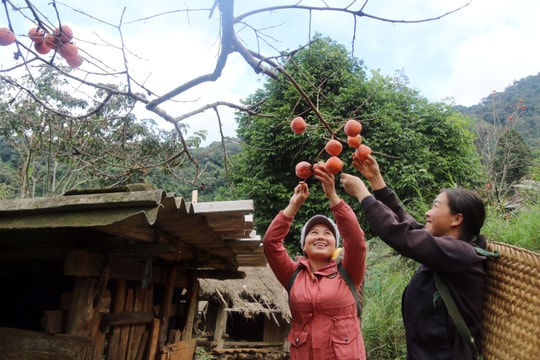Dream in the "pink capital"
The persimmon trees in Nam Anh commune, Nam Dan district have been "transforming" day by day. With the right orientation and creativity, daring to think and act of the people, the "persimmon capital" can completely become a tourist highlight in Uncle Ho's homeland.
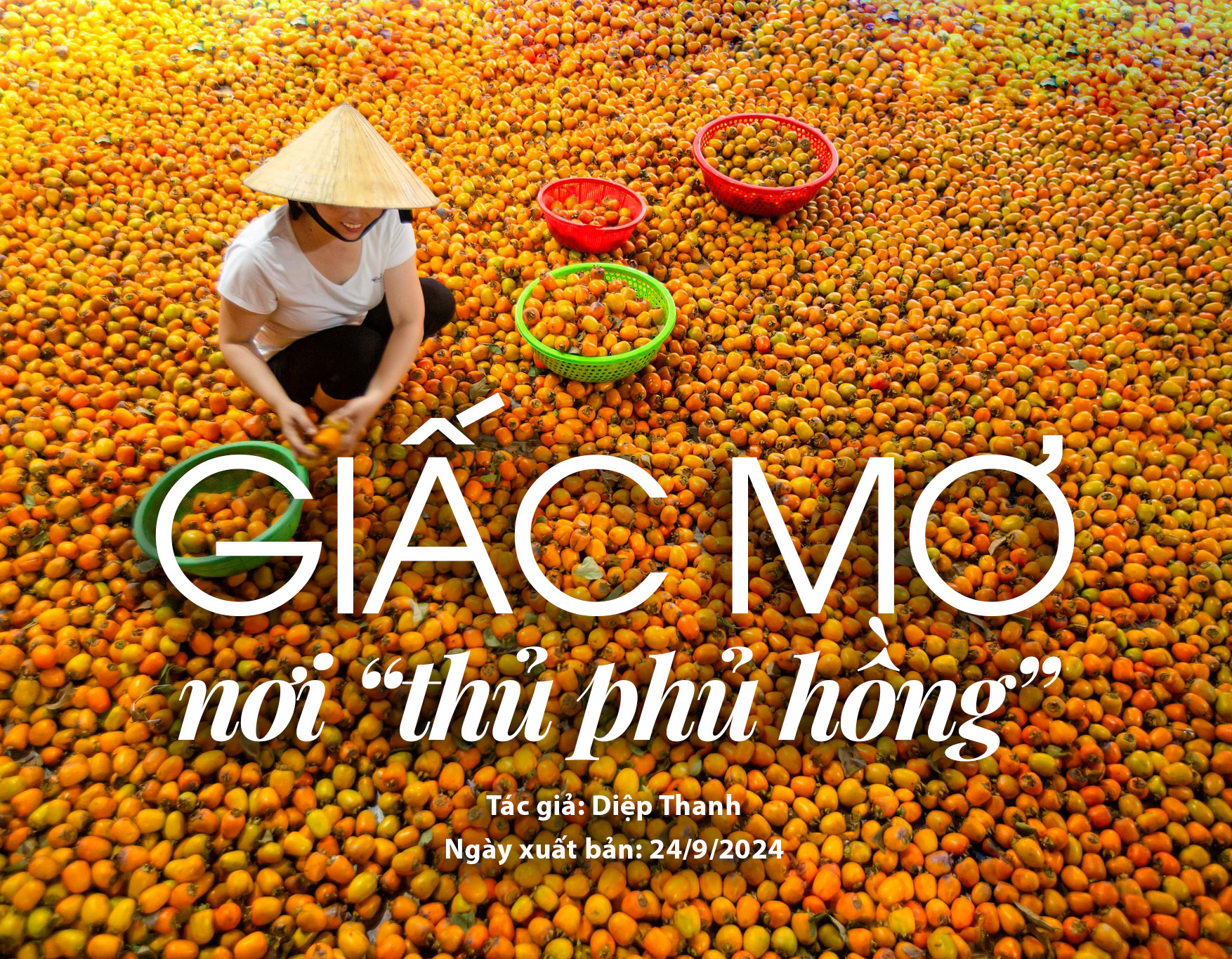
The persimmon trees in Nam Anh commune, Nam Dan district have been "transforming" day by day. With the right orientation and creativity, daring to think and act of the people, the "persimmon capital" can completely become a tourist highlight in Uncle Ho's homeland.
Rose Garden Memories
Born and raised in Nam Anh, Mrs. Nguyen Thi Hoa (57 years old) has spent her entire life with the persimmon tree. This tree with a spreading canopy and rough, cracked bark but bearing luscious fruit has witnessed many events, big and small, that she will never forget.
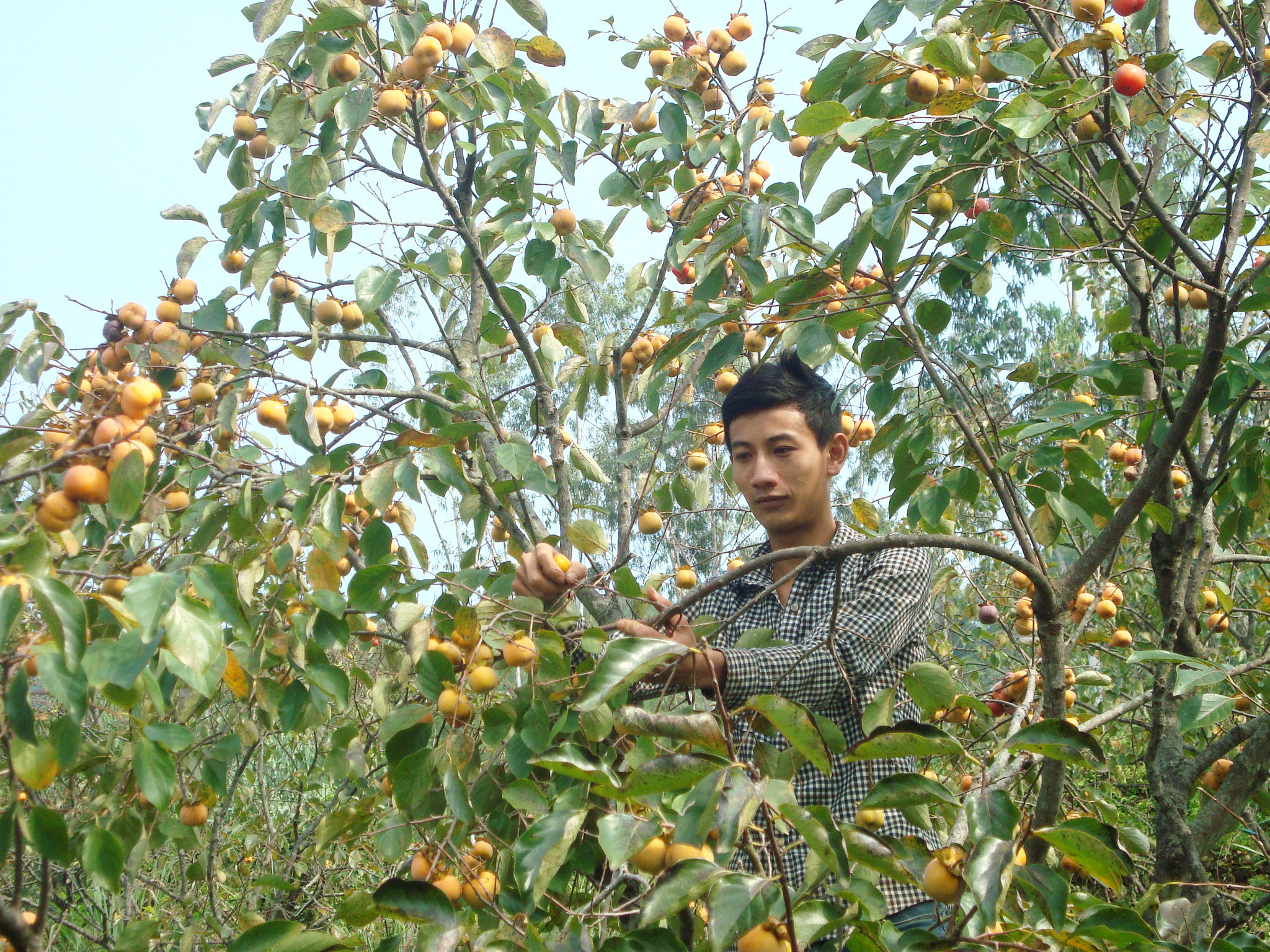
Mrs. Hoa and her friends of the same generation do not know.persimmonNam Anh has been around for a long time, only knowing that their childhood years were spent on rose branches. Back then, rose trees were not planted as much as they are now, and any house that could grow rose trees was very precious. The children in the village, partly because of hunger and partly because of mischief, when the rose season came, they would just wait for the house that was not paying attention to climb up and steal them.
"That time, while stealing persimmons with my friends, we were caught red-handed by the homeowner. The whole group quickly slipped down the tree and ran away. I was on a higher branch, only had time to drop all the persimmons on the ground and then climbed over to the nearby tree to deny my crime. No matter what the homeowner said, I refused to come down. When asked whose family it was, I didn't answer. Only when they promised not to punish me and let me pick the persimmons to take home did I come down. And it's true that I wasn't punished, and was even allowed to pick the persimmons to take home" - Mrs. Hoa laughed, recounting a story from her childhood.
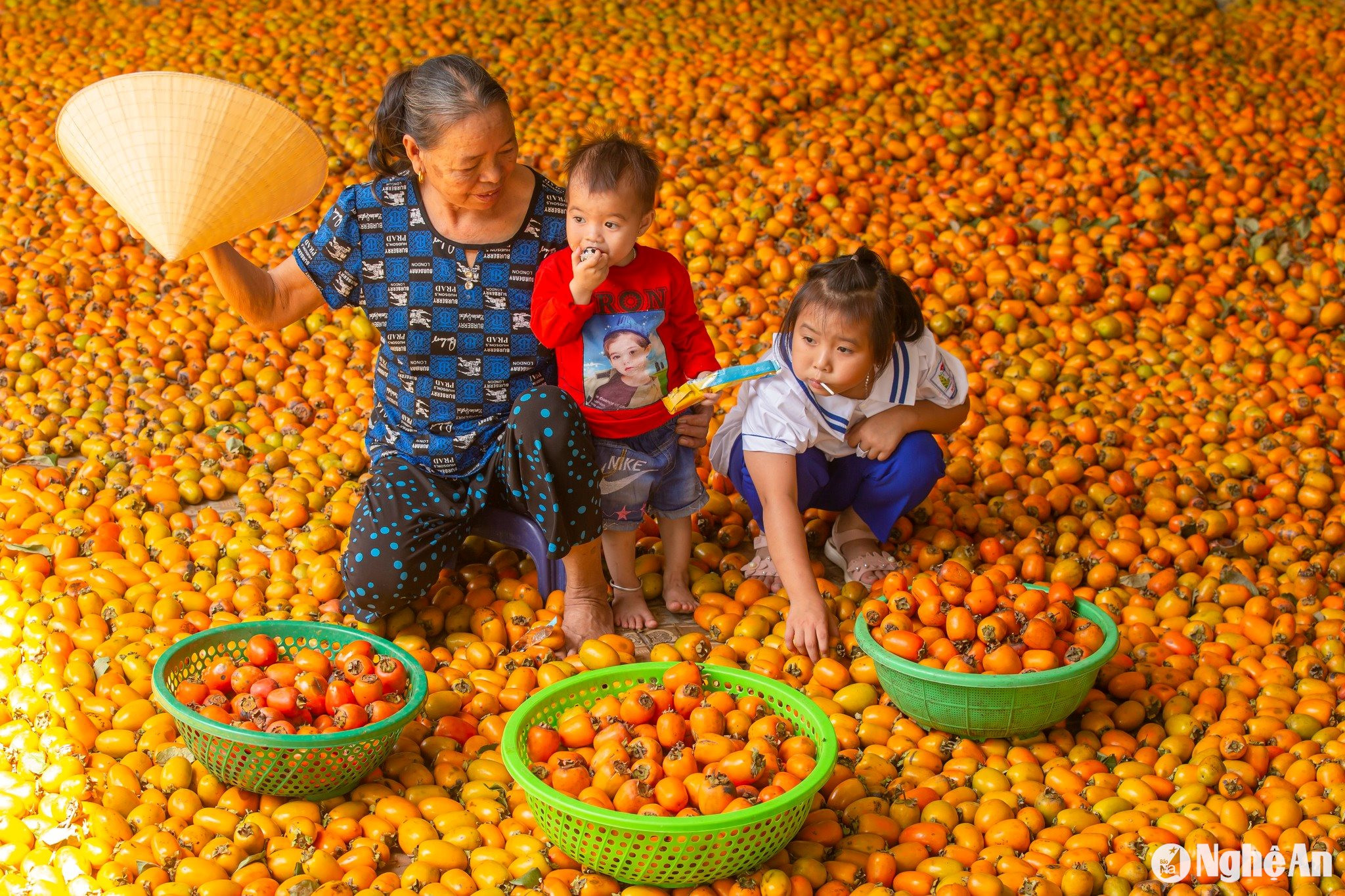
"Perhaps because she was grateful for the persimmon tree owner's kindness, when she reached the age of marriage, no matter how many men expressed their interest, Mrs. Hoa only "chose" the son of the persimmon tree owner who had returned from the army years ago," a friend of Mrs. Hoa added.
And it was true, by some fate, Mrs. Hoa only liked the son of the owner of the rose garden years ago. The love of Mrs. Hoa and her husband bore fruit, their first daughter was born exactly 37 years ago, also the year they planted the rose tree in front of the gate. The rose tree is now considered an ancient tree, regularly bearing bright red fruit every year. Their children have also married, living a warm and happy life.
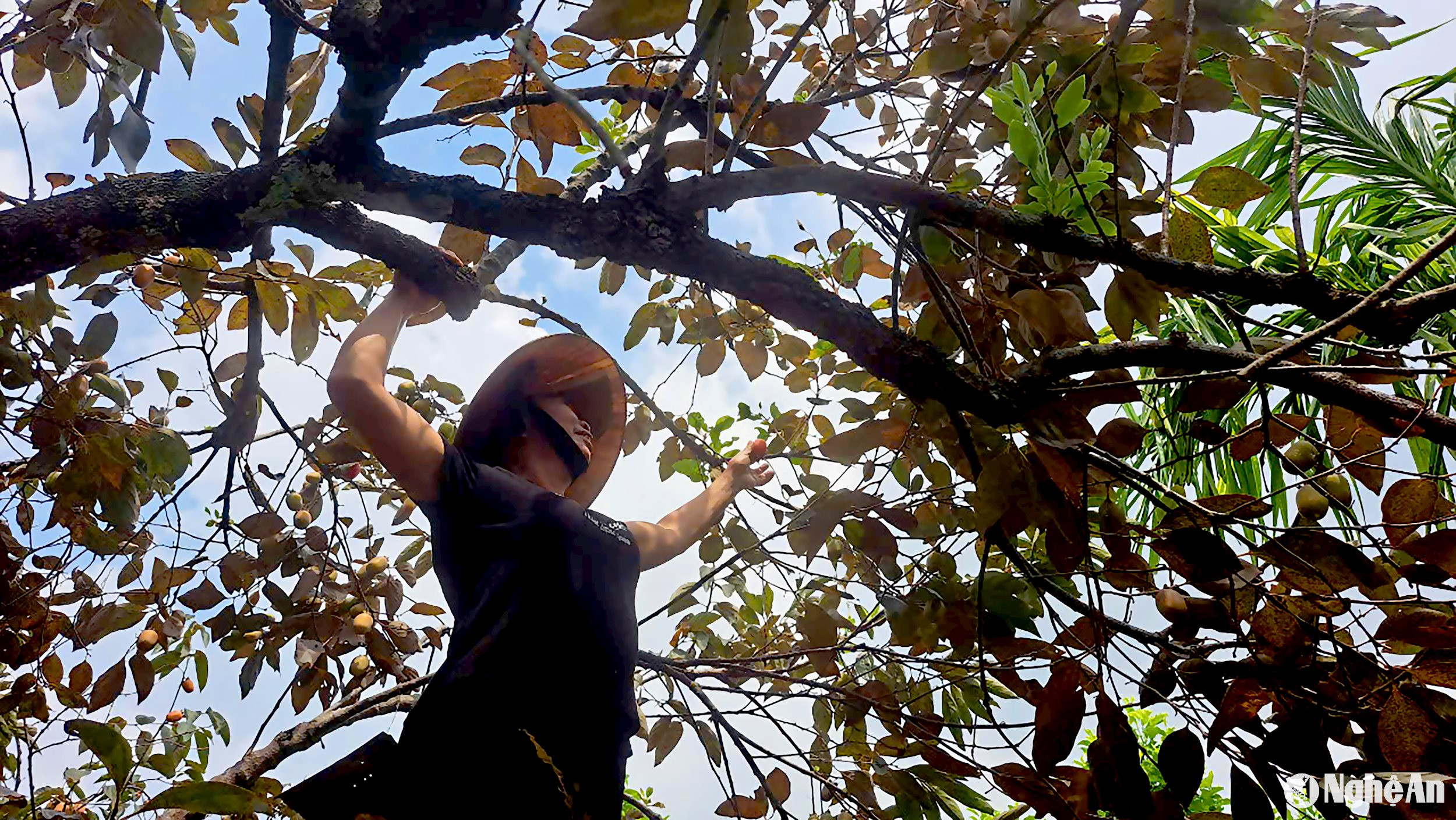
Under the rose canopy, in the stories of Nam Anh women, roses are not only memories, culture, life, but also a sacred "heritage": "Back then, any family that had roses was quite well-off. If the harvest was good, they could sell a ton of each tree, which could be exchanged for rice, meat, and money to pay school fees... My family didn't have any, but I bought green roses from other gardens, soaked them, and sold them at the market for a small difference. Thanks to that, we had more money to buy books, and my siblings were able to study until the end." "After getting married, my husband and I were given a small garden by my grandparents. My husband asked for some rose cuttings to plant - those were the first trees in the garden, money trees, silver trees that fed the whole family. Now that life is more prosperous, income no longer depends on the rose trees, the children discussed cutting down roses to build more houses, but my husband and I absolutely did not agree. As long as we are alive, the rose trees will still be there." "I have never seen a persimmon tree with so many fruits, as beautiful and delicious as the persimmon tree in front of my grandmother's house. One year, it alone harvested 300 kg. She loved that persimmon tree so much, she said, 'If I die, I will take the persimmon tree with me.' Later, when she passed away, the healthy persimmon tree suddenly withered and died. Everyone said, it went with her"...
In the "persimmon capital", we heard such heartfelt words about persimmon trees...
"Pink tourism"
From an economic perspective, many households choose to stick with rose gardens because this plant requires little care, has a long lifespan, flexible branches, can easily withstand storms, and brings in stable annual profits of up to hundreds of millions of dong.
But that’s not all, the benefits of persimmon trees also come from their beauty. In recent years, persimmon gardens in Nam Anh have become an ideal check-in spot for tourists. Following persimmon trees, the tourism industry and local products seem to have grown.
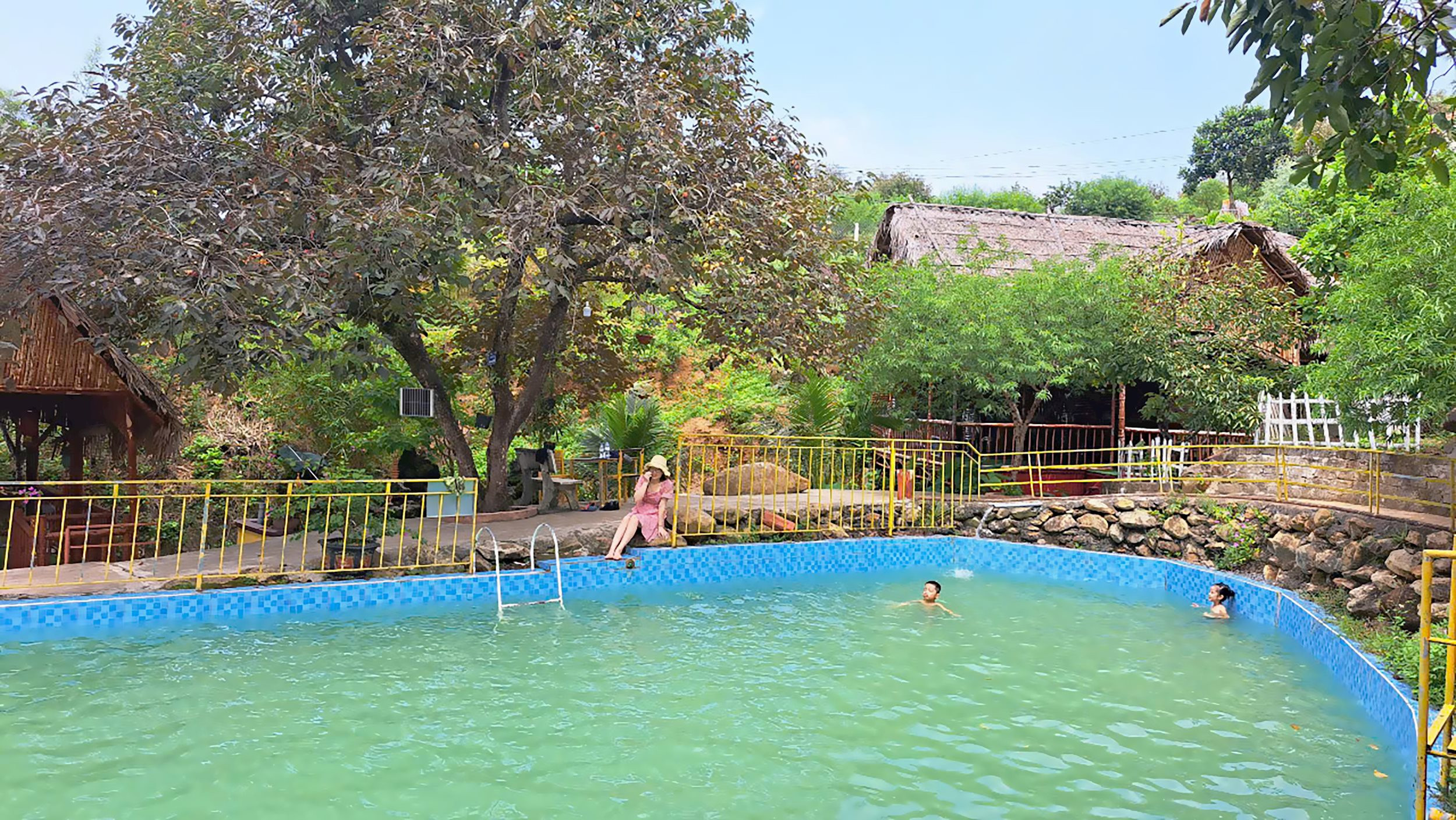
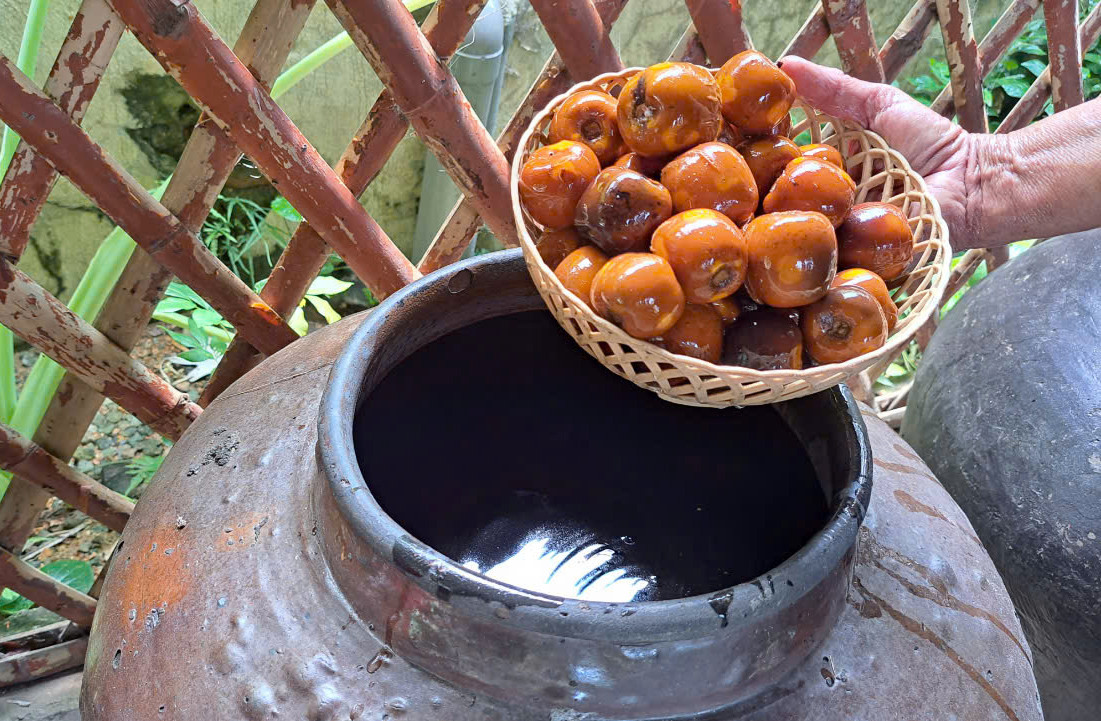
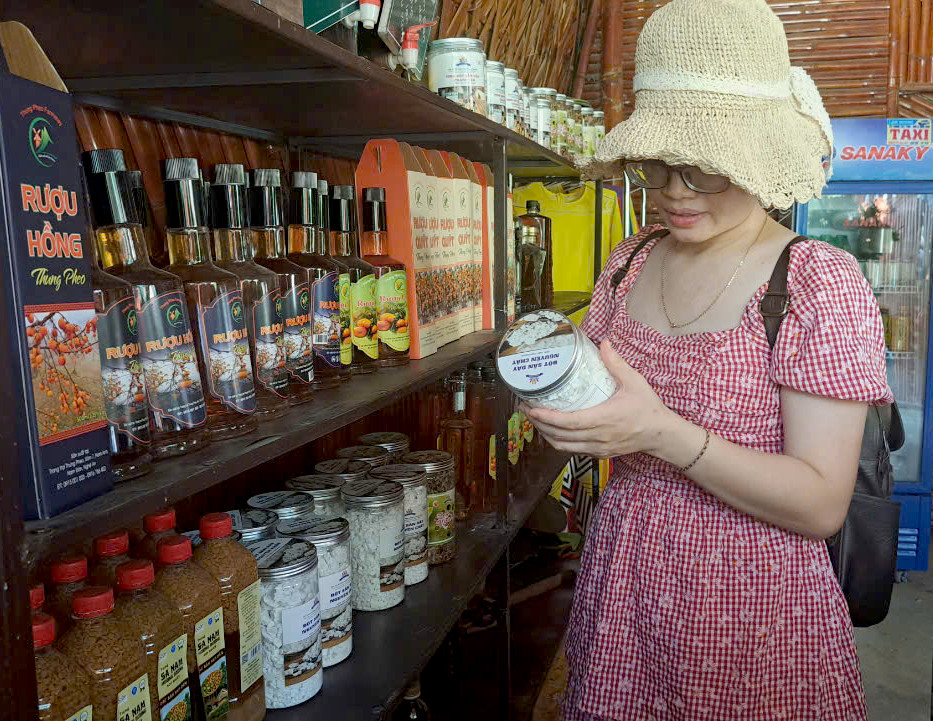
From a photographic perspective, the special appeal of the rose garden in Nam Anh comes from the rustic, wild beauty of the rough old trees. In late autumn, when the persimmons turn orange, the persimmon trees begin to shed their leaves. When the "leaf coat" is completely shed from the trees, the plump persimmons hang in a brilliant red on the bare, weather-beaten rose branches, creating an interesting contrast. Along with the beauty of the persimmon trees, moss-covered stones, and lush green ferns on the brick floor, the garden owner also cleverly arranged additional miniatures such as tables and chairs, a piano, a swing... In many photos, the rose garden exudes a magical beauty like the setting in a European fairy tale. That beauty is enough to convince many tourists in the province to come to Nam Anh during the persimmon season. The peak is from mid-October to mid-November.
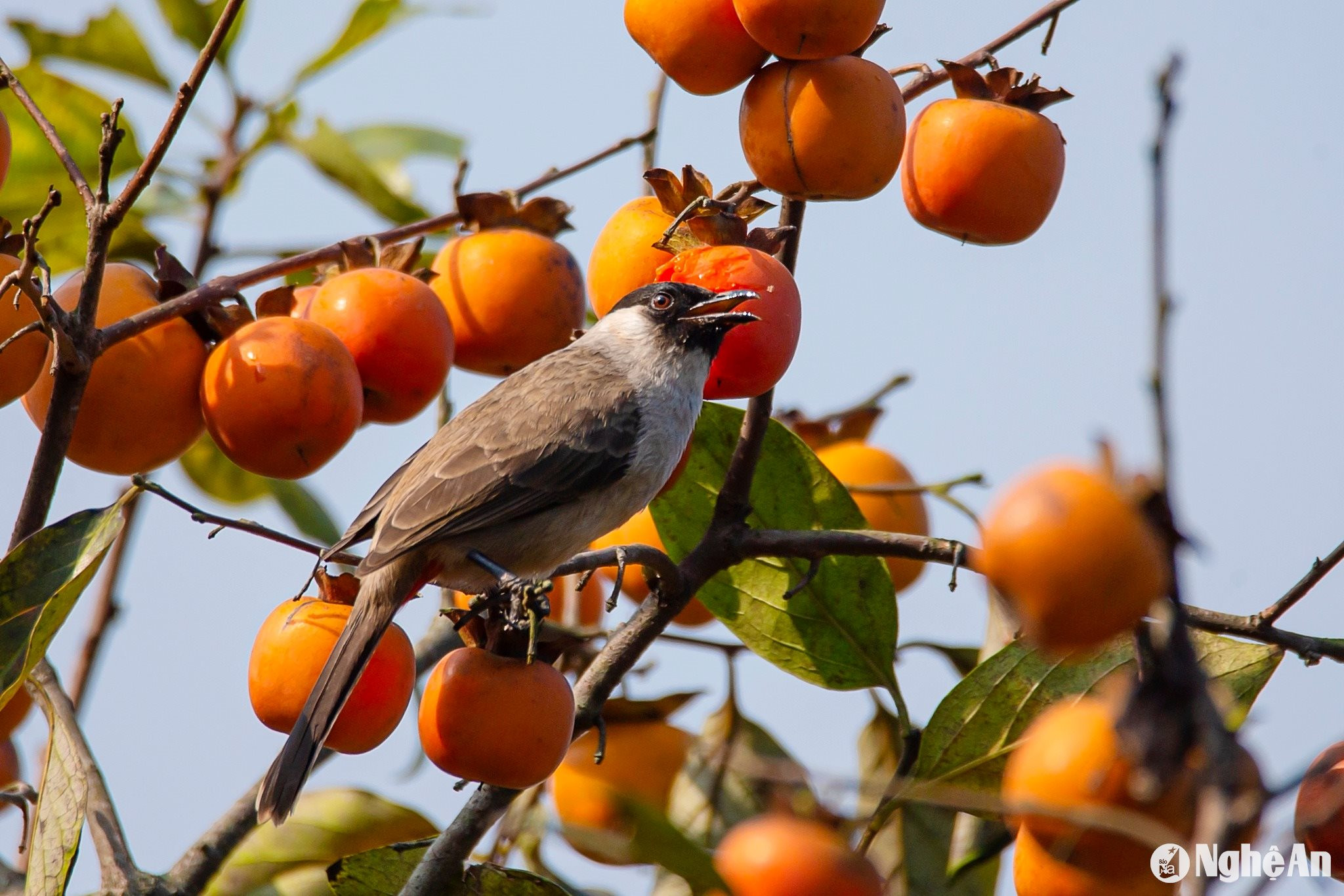
Ms. Phan Thi Tuyet, an employee of a famous tourist destination in Nam Anh, shared: “During peak months, on weekends, our garden welcomes up to 500-700 visitors. On days when it is too crowded and there is not enough space to serve, we have to ask the surrounding garden owners to open the doors and open the garden so that visitors can get the most satisfactory photos. The neighbors around here are also very open to support. Not only taking photos, visitors coming here can also eat and drink, borrow clothes, stay in air-conditioned rooms... Visitors who want gifts can buy persimmons in the garden or buy persimmon wine soaked in the garden itself.”
Saying that, Mrs. Tuyet led us to see the jars of persimmon wine that had just been soaked. Persimmon wine was soaked with green persimmons that had begun to turn yellow-brown, shimmering, and fragrant. The persimmon wine products that met the 3-star OCOP standard were bottled, labeled, and sold right in the garden along with many other products of the garden.localsuch as tangerine wine, soy sauce, tapioca starch...
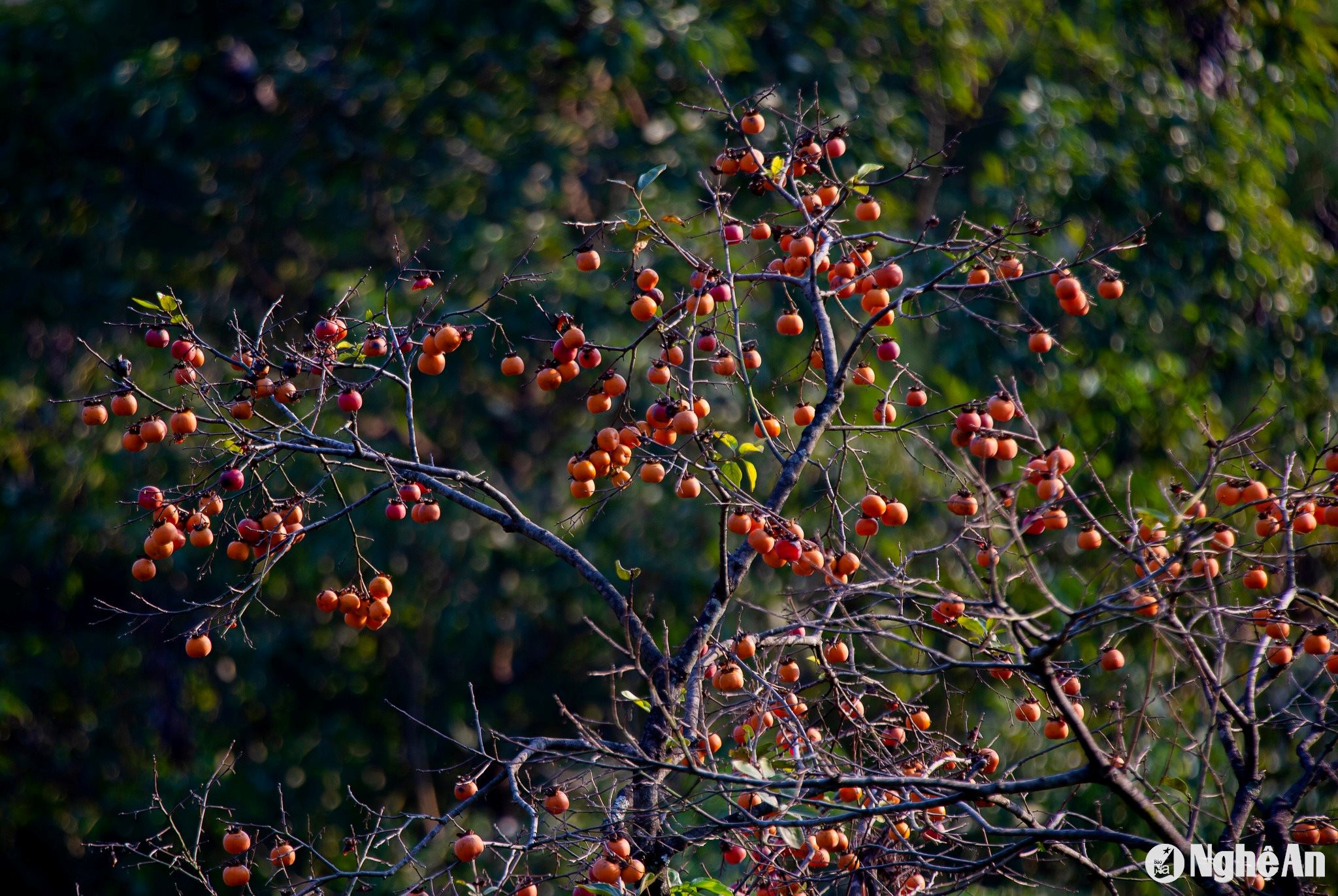
The attraction of rose gardens has made many investors boldly build agricultural tourism spots with many accompanying services and utilities. “Five years ago, right here was a rocky, wild, steep rose garden. The investor had to spend a lot of money and effort to renovate the site, turning it into a complex of motels, swimming pools, camps... with full amenities. The increasingly famous Nam Anh rose gardens are also thanks to strong communication, inspiring experiences and inviting visitors from near and far” - Ms. Nguyen Thi Hoa said.
“We are preparing to renovate the rose garden before the peak season, from closing the fence, reinforcing the bridges, repainting the motels… We have to do everything so that when guests arrive, everything is ready for the best experience. That meticulousness is also the reason why we can go a long way, sustainably with the rose garden tourism model” – Mr. Nguyen Van Tuyen, owner of a rose garden resort in Nam Anh shared.
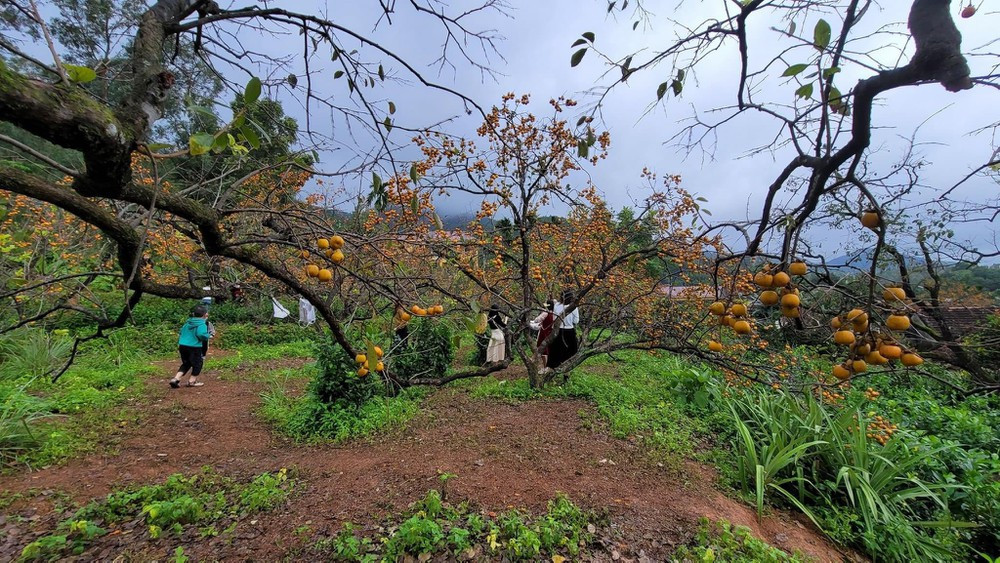
Another persimmon season is coming. Listening to the stories of the Nam Anh people, the confidences of the tourism workers about persimmons, I suddenly remembered the famous wind-dried persimmons of Da Lat. Who knows, one day, Nam Anh’s “persimmon dream” will also become a famous brand in the South and the North like that…

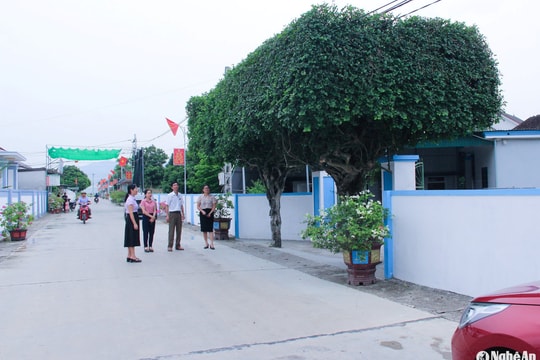
.jpg)

